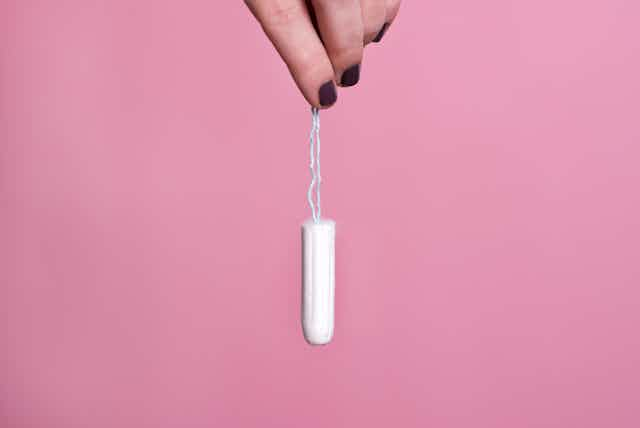Periods are something women and girls have been having for thousands of years – it’s the reason you and I are even here. And yet around the world, there’s still an element of shame associated with a woman’s monthly cycle.
Menstruation is associated with smells, mess, blood, gore, impurity and disgust. Which is probably why many women say they feel uncomfortable talking about their periods. This leads to women suffering in silence when it comes to “that time of the month” – hiding away from what some deem a “dirty secret”.
This is in part why a recent report has called for boys, as well as girls, to learn about periods and the menstrual cycle at school. Plan International UK, the charity behind the report, suggests there is a need to talk more about the issue as many girls feel embarrassed – with the menstrual cycle tarnished with stigma and taboo.
Their findings also reveal that one in seven of the girls and women interviewed said they did not know what was happening when they first started their period – clearly demonstrating a need for more to be done to teach young women about what’s to come.
Bad education
Yet according to the Department of Education in England, discussing menstruation is technically part of the curriculum for science. Despite this, though, almost 15% of young people said they were taught nothing at school about menstruation.
Previous research has also shown that teacher attitudes and classroom resources may prolong the negative stereotypes associated with menstruation. And for many girls, this lack of support in the classroom can lead to feelings of shame around the whole subject. Some girls are even missing school because they cannot afford sanitary products.
This clearly then goes way beyond playground embarrassment or bullying – it is a far wider political and health inequalities issue.
While the idea of tackling this head on and talking to boys in schools sounds good in practice, from my experience as an educational sexual health worker in central Manchester it is difficult to discuss sensitive issues such as menstruation with boys and young men.
The overriding responses tend to be that girls get “moody” or “smell funny” during periods, and in general, they want to evade talking about the subject because it is a “girl’s problem”.

But I have noticed that boys tend to have these attitudes more when they are in mixed groups, rather than single sex groups. In front of the girls, they tend to be more disrespectful and unsympathetic about the issues associated with periods for girls – and primarily see any association with the vagina as sexual.
When they are alone, however, with no girls present, I’ve noticed how boys have more understanding about periods than they let on in front of the girls – even being sympathetic about the difficulties women face.
But even though many of these boys have the knowledge to understand what menstruation means, and many are even sympathetic towards girls, in my experience, it is difficult to challenge the taboos associated with menstruation with boys and young men.
Not just for girls
For this to change, schools needs to be more open about the importance of menstruation and they need to be more sympathetic towards the stigma girls face. For a start, schools should provide resources and information that girls can access. This will help them understand – rather than feel scared and fearful – what is happening to their bodies during puberty.
This is one step towards taking the taboo out of menstruation, because to achieve gender equality on this issue, girls need to feel able to talk about their periods and challenge the discrimination that is associated with menstruation and developing girls bodies. And boys can play a big role in this – if they also get the right support and resources.
The fact remains that many adult men – and women – are still highly uncomfortable talking about periods. And given that Plan International UK found that almost half of girls aged 14 to 21 are embarrassed by menstruation, it’s time this changed – period.

